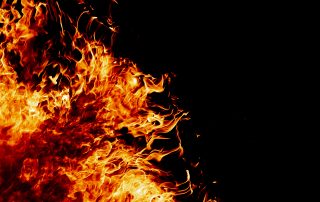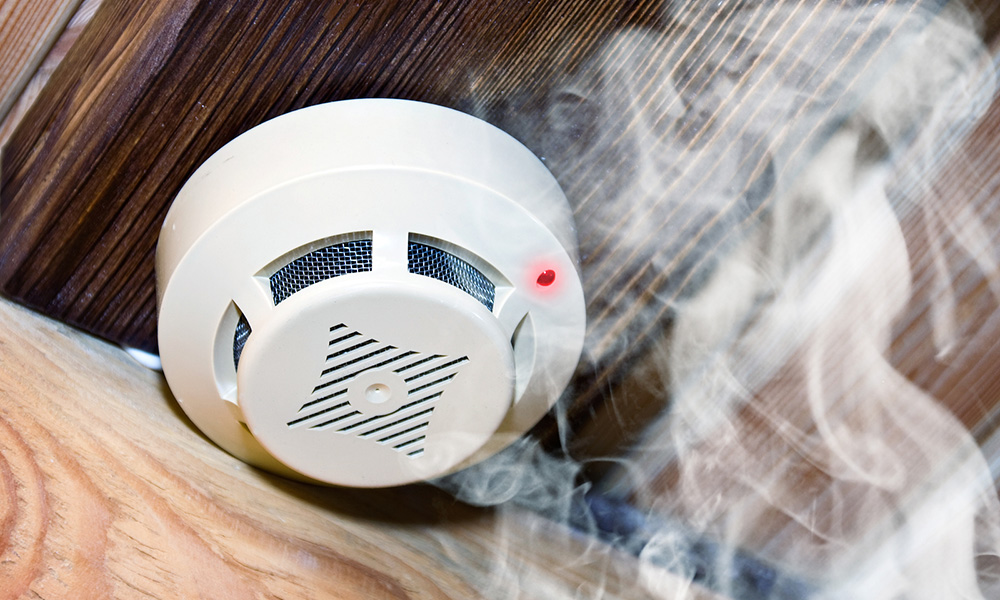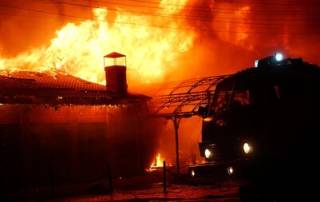The crime of arson occurs when somebody sets a fire or causes an explosion that damages a car or building. Most people realize that it is wrong, legally speaking, to light fire to somebody’s house with intention but many don’t realize that arson doesn’t necessarily specify that there is an intention to set the fire. Recklessness could lead to a fire and still be considered arson.
Arson is not always a felony in New York but it is most of the time. The reason for this is pretty straightforward, the crime has quite severe ramifications after all. As such, the penalties for committing arson in New York are also quite severe. To see what the consequences of arson are, we first should look at the different degrees of arson charges in New York.
What are the Different Degrees of Arson Charges in New York?
There are five different degrees of arson charges as laid out in Article 150 of New York’s penal code. As with other charges, the first degree is considered to be the worst charge while each subsequent degree has less consequences associated with it.
The different degrees are:
- The Fifth Degree: The fifth degree is the only one of the possible arson charges that isn’t a felony. It is a misdemeanor that could result in incarceration up to a year. This crime occurs when somebody sets fire to a person’s property or causes an explosion without the owner’s consent. There can also be fines or restitution to pay to the victim.
- The Fourth Degree: This can result in up to four years of imprisonment or a probation term lasting up to five years. It is a class E felony which occurs when a car or a building is damaged by fire or an explosion.
- The Third Degree:Arson in the third degree is committed when somebody willfully sets fire to or uses an explosive to cause damage to a car or a building. It is a class C felony and carries with it a maximum of 15 years in prison. At the minimum, third degree arson results in a year spent in incarceration. That’s on top of possible fines and restitution to be paid to the victim.
- The Second Degree: Arson is the second degree occurs when somebody intentionally sets fire to a car or building that has people inside of it. The arson in this case would be aware of the possibility that people might be present, if not direct knowledge thereof. Arson in the second degree results in incarceration of a minimum of 5 years and a maximum sentence of 25 years. Arson in the second degree is a class B violent felony.
- The First Degree: Arson in the first degree occurs when an individual intentionally sets off a fire or an explosion that damages a car or a building that results in serious physical injury to another injury. The arsonist also must be seen to have acted despite knowing that somebody could be on the scene. Arson in the first degree is a class A-I felony.
What are the Consequences of an Arson Charge in New York?
As discussed in the previous section, the different degrees of arson charges each come with their own consequences. However, one should never take an arson charge lightly. Even a charge of arson in the fifth degree carries the potential to put the defendant behind bars. With each of the degrees carrying worse consequences, it’s easy to see why the charges are so serious.
A harder consequence to discuss is the amount of money that a defendant could owe thanks to an arson charge. Arson charges leave open the possibility of paying a fine and how large of a fine the defendant will have to pay will grow in severity in direct relation to the severity of the charges.
But arson charges also often include paying restitution to the victims for the damage the arson caused. This is not the type of figure that one can assume or give a ballpark estimate of without knowing the extent of the specific damage relevant to the case. An arson that damages a beat up car is going to require less damages be paid to the victim than a case in which a brand new, state of the art building was damaged with a fire. Though even in this example there is flexibility, as the damage the building endures might not be extensive and therefore the damages paid could be quite small compared to what they would be if the fire had spread further.
What are the Defenses Against an Arson Charge?
One of the biggest defenses when it comes to arson charges is to show that there was not intent behind the action. Many of the different degrees of arson charges focus on the knowledge the defendant had of the premises and their intent. Other defenses include:
- Natural Causes: Not all fires are started by an arsonist. Natural causes can be the reason behind a fire and if you can show that natural causes were the culprit then nobody is guilty of the crime.
- Insufficient Evidence: Proving that there is enough evidence to convict somebody of arson can be quite difficult, not the least because the fire can destroy so much potential evidence.
- Faulty Science: There are many cases of arson in the past that have been proven to have resulted in a conviction based on faulty science. A good lawyer can help to show that the science behind your case does not support you as the arsonist.
What Should I Do if I’m Facing an Arson Charge?
Arson is the type of charge that you don’t want to take lightly and you don’t want to wait around before acting. The first thing you should do if you are being charged with arson is to get yourself an attorney that has experience with cases like this. After all, you’re looking at the potential of spending time in prison regardless of which degree of arson you’re being charged with.
Here at Mirsky Law Firm we are dedicated to defending people just like you. Give us a call at (516) 299-6187 to see what we can do about your case and defend you against your arson charges.











